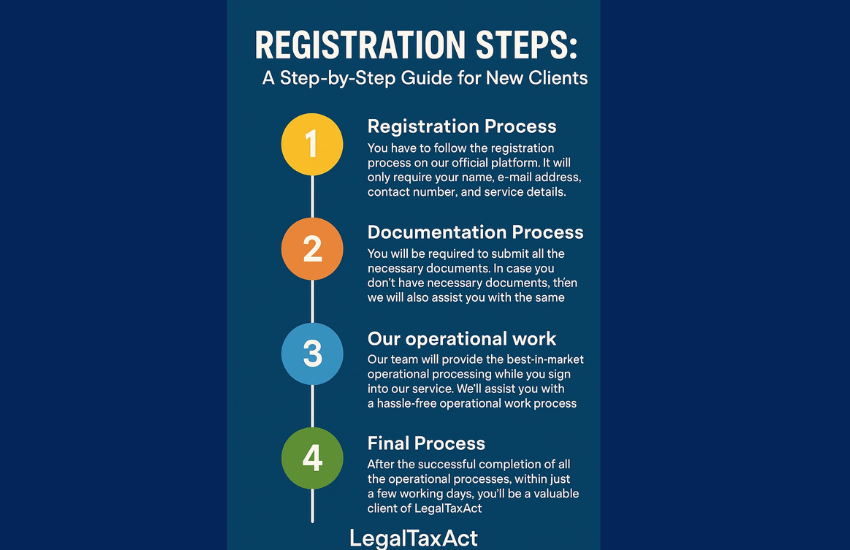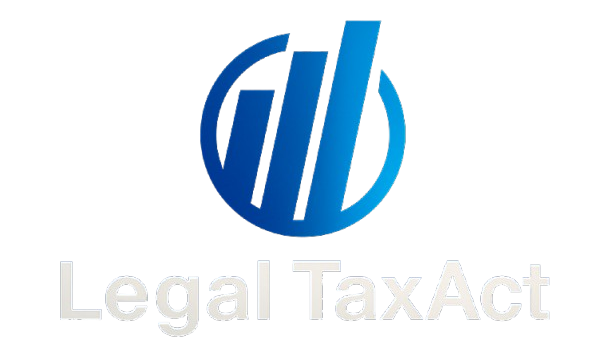Dissolution of Partnership Firm
According to the Indian Partnership Act 1932, one can dissolve a partnership using the Dissolution of Deeds. Let Legal TaxAct handle your DISD for you.
Forming a partnership is the simplest way to start an establishment with another person. But, sometimes, you have to put an end to the partnership firm, which is known as Dissolution of partnership. And for that, you have to make a Dissolution of Deed.
Get Quote Instantly

5 Years
Of Experience

1100 +
Cases Solved

5 +
Awards Gained

4 k +
Trusted Clients

2 k+
Queries Solved
A Dissolution Deed or Dissolution of Partnership Deed is written or made when the partnership between the partners of a firm dissolves. The Dissolution takes place according to Section 39 of the Indian Partnership Act 1932.
The term “firm dissolution” suggests the breakup of a partnership between all its business participants. This process clarifies the discarding and selling of the respective firm’s assets, accounts and liability settlements. However, the partnership firm dissolution, legal provisions and account settlement come with certain risks and must be handled professionally.
Don’t know whom to ask for help? Contact us and our aces will handle all your Dissolution of Deeds issues!w
What is Partnership Firm Dissolution?
A partnership is a unique business structure in which two or more individuals come together to operate a business having a shared objective and pre-defined ratio of profit and loss. Partnerships like any other business may face challenges that may lead to the dissolution of the firm. A properly prescribed procedure is followed for the dissolution of the partnership and usually the same is mentioned in the partnership agreement.
Dissolution of a partnership refers to the termination or cessation of the partnership business, effectively ending the association among partners. This dissolution of the partnership firm can be voluntary or compulsory, like in the case where the firm is found conducting unlawful business.
The process to dissolve the partnership involves winding down the business activities, settling all accounts, liabilities and claims among the partners and finally distributing the remaining assets according to the agreed-upon terms which are either mentioned in the partnership contract or an entirely new deed is formed mentioning the terms, procedure and conditions of the dissolution.
The reasons for which a partnership can be dissolved:
- Mutual Agreement
- Completion of the motive or project for which the firm was created
- Death of a Partner
- Bankruptcy, retirement or insolvency of a partner
- Breach of the partnership agreement
- End of partnership period
- Selling the firm to a third party

Company Address Amendment (out of State)
Get your Company Address Amendment (out of State) from Legal TaxAct in no time, without any hassle. Our team of experts will be with you every step of the way to make sure everything is done correctly and quickly.
Get Quote Instantly
The registered office address of a company in India must be registered with the Ministry of Corporate Affairs (MCA); the other branches and offices can be opened by a company without any prior intimation to the Registrars of Companies (ROC). If there is a change of address in the registered office address of a company, the ROC must be notified within 15 days. The procedure to shift the registered office address from one state to another differs slightly from others. The company’s Memorandum of Association (MoA) changes as the registered office address also changes. The ROC of the state wherein the new office will be located has to register the same. A new certificate of incorporation should be issued. Get your Company Address Amendment (out of State) from Legal TaxAct in no time, without any hassle. Our team of experts will be with you every step of the way to make sure everything is done correctly and quickly. Make the most of your business legally with Legal TaxAct – it’s fast, easy, and reliable.
How to apply

Add Director
Let Legal TaxAct provide comprehensive services relating to Add Director with unmatched customer support and authentic services.
Get Quote Instantly
To Add a Director, it is essential to ensure that the company stays within the maximum number of directors after adding the new director. If so, then, Digital Signature must first be obtained for the proposed director. Once the digital signature is received, the proposed director can be added to the company with the consent of the shareholders. The Companies Act of 2013 outlines the specific procedures for adding a director. Get everything done efficiently and confidently, from filing forms to getting all the necessary documents drafted and reviewed, all done in one place! Let Legal TaxAct provide comprehensive services relating to Add Director with unmatched customer support and authentic services.
Benefits
Single Ownership and Management
OPC allows a single individual to form and manage a company. This is beneficial for entrepreneurs who want to start a business on their own without the need for additional shareholders or partners. The sole member has complete control over the company's operations and decision-making process.
Limited Liability
The biggest advantage of OPC registration is that it provides limited liability protection to the sole member. This means that the personal assets of the member are separate from the company's liabilities. In case of any financial losses or legal liabilities, the member's personal assets remain protected.
Separate Legal Entity
OPC is considered a separate legal entity from its owner. It has its own identity, distinct from the individual member. This provides credibility and enhances the business's image, making it easier to enter into contracts, raise funds, and establish business relationships.
Perpetual Succession
OPC registration ensures perpetual succession, which means the company continues to exist even if the owner or promoter passes away or becomes incapacitated. The shares of the company can be transferred to a nominee mentioned in the incorporation documents, ensuring the continuity of the business.
Easy Funding and Bank Loans
OPCs have better access to funding and bank loans compared to sole proprietorships or partnerships. Financial institutions and investors find OPCs more trustworthy and are more willing to provide financial assistance. OPCs can raise funds through equity or debt and have the option to issue shares to investors.
Tax Advantages
OPCs enjoy certain tax benefits. They are eligible for tax deductions, exemptions, and benefits available to other types of companies. OPCs are taxed at the corporate tax rate, which may be lower than individual tax rates, resulting in potential tax savings.
Remove Director
Get everything done efficiently and confidently, from filing forms to getting all the necessary documents drafted and reviewed! at Legal TaxAct
Get Quote Instantly
If there is a legitimate reason for the removal of the Director, in that case, it is crucial to ensure that the company should have the minimum required number of directors after the removal of the Director. If so, then the shareholders can remove a director from their position before the end of their term of office by passing an ordinary resolution as per section 169 of the Companies Act of 2013. However, before taking this action, the Director must be allowed to be heard. The Companies Act of 2013 outlines the specific procedures for removing a director. Get everything done efficiently and confidently, from filing Forms to getting all the necessary documents drafted and reviewed; all your needs are in one place! Let Legal TaxAct provide comprehensive services relating to the Remove Director with unmatched customer support and authentic services.
Registration Process
Our legal experts meticulously review all submitted documents to minimize the risk of errors or misleading information, ensuring a smooth and hassle-free process.
Our top legal professionals are here to assist you with all your documentation needs and licensing requirements.
Our lawyers will proceed with your documents to prepare a precise and legally sound draft.
Our lawyers will proceed with your documents to prepare a precise and legally sound draft.
Once your documents are successfully verified, our legal team will prepare the legal draft on your behalf. You can conveniently download it from our website.
Increase in Paid-Up Share Capital Company
Strengthen your financial position, open doors to further funding opportunities, and pave the way for exponential growth. Experience the Legal TaxAct advantage and take your company to new heights today.
Get Quote Instantly

5 Years
Of Experience

1100 +
Cases Solved

5 +
Awards Gained

4 k +
Trusted Clients

2 k+
Queries Solved
Introducing Legal TaxAct’s premier service for boosting your company’s growth and financial strength – An increase in Paid-Up Share Capital. As corporate law and compliance experts, we understand the importance of accessing additional funds to fuel your expansion plans, invest in new projects, or even reduce debt. Our team of skilled professionals is well-versed in the intricacies of the Companies Act 2013. It will guide you through the entire process seamlessly. With Legal TaxAct by your side, you can ensure full compliance with legal requirements, including obtaining shareholder approval through a well-structured general meeting resolution. Whether you opt for a rights issue, public offering, or private placement, our meticulous attention to detail will safeguard your interests. Rest assured; our services are fully aligned with the regulations set forth by the Securities and Exchange Board of India (SEBI) for public issues. Choosing our Increase in Paid-Up Share Capital service unlocks possibilities for your company’s future success. Strengthen your financial position, open doors to further funding opportunities, and pave the way for exponential growth. Experience the Legal TaxAct advantage and take your company to new heights today.
How to apply

Change In Name Company
Unlock Your Business’s True Potential with Legal TaxAct’s Expert “Change In Name Company” Service.
Get Quote Instantly
Embrace the transformative power of a name change with Legal TaxAct’s top-notch “Change In Name Company” service. Your company’s journey toward reinvention begins here as we guide you through every step of this pivotal process. Our seasoned experts understand the intricacies of rebranding, mergers, and acquisitions, and we are committed to helping you navigate the legal procedures seamlessly. A new name represents a fresh identity and opens doors to exciting opportunities, and we’re here to ensure your transition is smooth and successful. With a keen eye on your stakeholders’ perceptions, we’ll craft a compelling narrative highlighting your business’s evolution, enhancing your market presence, and bolstering your brand image. Trust Legal TaxAct to unleash your company’s adaptability and set the stage for an exciting future in an ever-changing business landscape. Let us be your partner in unlocking your business’s true potential through the power of a name.
Benefits
Single Ownership and Management
OPC allows a single individual to form and manage a company. This is beneficial for entrepreneurs who want to start a business on their own without the need for additional shareholders or partners. The sole member has complete control over the company's operations and decision-making process.
Limited Liability
The biggest advantage of OPC registration is that it provides limited liability protection to the sole member. This means that the personal assets of the member are separate from the company's liabilities. In case of any financial losses or legal liabilities, the member's personal assets remain protected.
Separate Legal Entity
OPC is considered a separate legal entity from its owner. It has its own identity, distinct from the individual member. This provides credibility and enhances the business's image, making it easier to enter into contracts, raise funds, and establish business relationships.
Perpetual Succession
OPC registration ensures perpetual succession, which means the company continues to exist even if the owner or promoter passes away or becomes incapacitated. The shares of the company can be transferred to a nominee mentioned in the incorporation documents, ensuring the continuity of the business.
Easy Funding and Bank Loans
OPCs have better access to funding and bank loans compared to sole proprietorships or partnerships. Financial institutions and investors find OPCs more trustworthy and are more willing to provide financial assistance. OPCs can raise funds through equity or debt and have the option to issue shares to investors.
Tax Advantages
OPCs enjoy certain tax benefits. They are eligible for tax deductions, exemptions, and benefits available to other types of companies. OPCs are taxed at the corporate tax rate, which may be lower than individual tax rates, resulting in potential tax savings.
FAQS
Q1. What essential elements to keep in mind while legal Drafting?
While working on a legal draft, one must keep the following things in mind:
- Avoid ambiguity
- Be Clear
- Keep it simple
- Be precise
- Unilateralism
- Remember and follow the chronology
- Don’t forget to define important things
- Focus on adaptability
- The draft should be in a lucid way
- Be logical
Q2. How many types of drafts are there in the process of Legal Drafting?
There are mainly three types of drafts in the legal drafting process, these are:
- The first draft focuses on the proper mentioning of facts
- The second draft works on the correction of the first draft’s language to make it easy to understand
- The final draft is to give it the final touch so that it can convince the concerned authority
Q3. Are ‘Community Jargons’ allowed in Legal Drafting?
No, community Jargon is not allowed in Legal Drafting.
Q4. Should I hire a lawyer to prepare my legal draft?
If you are well aware of the legalities and have proper knowledge of the subject matter, you can try it out yourself. However, while preparing a legal draft, there are many parameters and conditions one must keep in mind which may affect you in future, so it is best to take help from professionals to avoid legal actions or conflicts.
Q5. What is a draft?
A draft is a precise legal document that gives all the details about a (legal) case. It is a rough document prepared by the lawyer, which later requires a final touch to compose the original draft.
